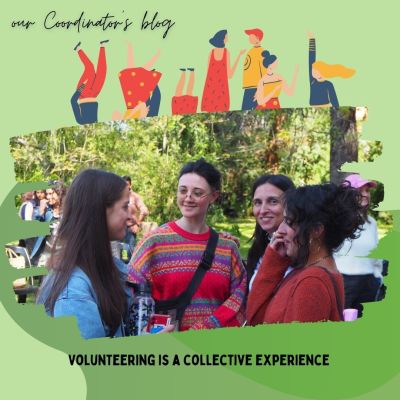Hi Monica, can you tell us how you started working in the Radio Station and who leads this organization?
My name is Monica Perez, I am part of the social and political organization Radio Riachuelo in La Boca. Now I am the coordinator of the area, I operate and I learn a lot about the organization with all the people that work here. It doesn't matter who runs the organization, because what is important us is that the message being transmitted has meaning, thus any person can transmit it. If there is a fire in the neighborhood, we go to the place, we approach the case and we follow the process all along and as we cheer up families, we try to have a continuity because the events that happen are not only a title for the medias, above all, we care.
Who benefits from the organization's actions?
This is for the common people, for the neighbors of the neighborhood, for the neighbor who lived on the next-block. I think, the people who listen to the radio can get benefit from it, we almost always have news about what is happening day by day in our territory and we always look for news about what is really happening in the neighborhood, about the truth.
In this way, they can talk, they can tell their reality, they also have a word to say, it is very important for us because any person can express themselves about their daily life.
What are the objectives and actions of the organization?
The activities didn’t stopped because communication is one of the most important thing we need at this moment of pandemia. What we need is to communicate because right now we are closed at home and we tend to loose the social contact. So we need to communicate with the neighbors and the people who are passing this times with difficulties. We continue to work as before, but we have slightly reduced our schedules. We have changed the way of communicating with the people of the neighborhood, because of the lack of mobility and because we have to stay at home so we cannot go to the place, thus now we talk to people by phone, it is a new way of communicating and looking for the information we need and keep people aware.
Who are the most affected by this pandemic?
The poor, the most vulnerable, those who don’t have a shoulder to rest on, to be able to solve it, or where to stay in this time of pandemia. There are many people who cannot be in their house waiting until COVID-19 disappears, because they need to work. They need to get money and food to live these days, I suppose that they are the most affected people.
How do you think this situation will affect the country's economy?
Terribly, it would be a very hard time, very hard years, this will be very difficult, we already had crises in the economy but this one will be worse. There will be more poor people, more hunger, more poverty, and it will be very complicated in this sense, it will affect the social contact, It will take time to return back to normality. I think the best method to handle it is so to maintain social relations to be united I believe that solidarity will take other forms, not only in assisting, this kind of solidarity will change the world, we will not find another way of stopping it if we are not united, and it will be worldwide complicated to get out of this situation.
Do you note some positive points of the COVID-19 such as solidarity?
The most positive thing i saw during these days of quarentine is how people value things, they value what they have, they value attachments and the simple and little things of life. Argentina is a supportive country, it always was, this will not change, this will continue even more now. We need to transform this solidarity into a strenght to fight this pandemia all together.





